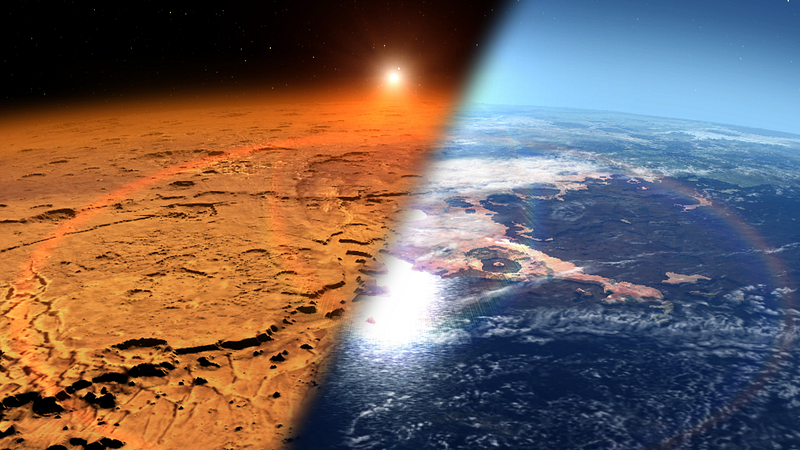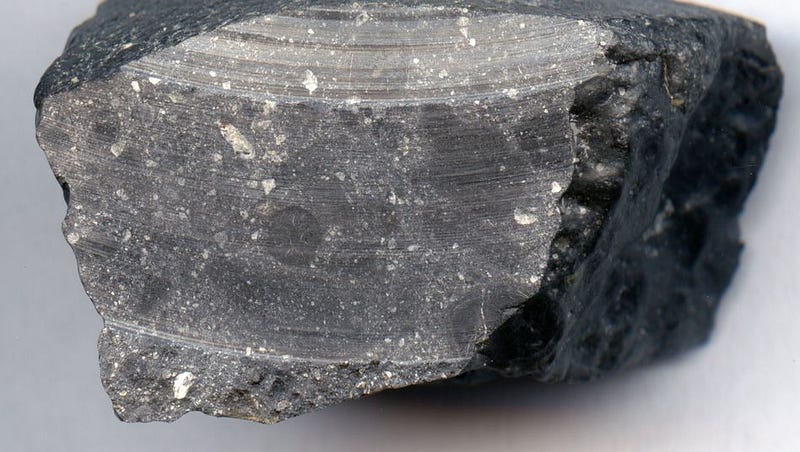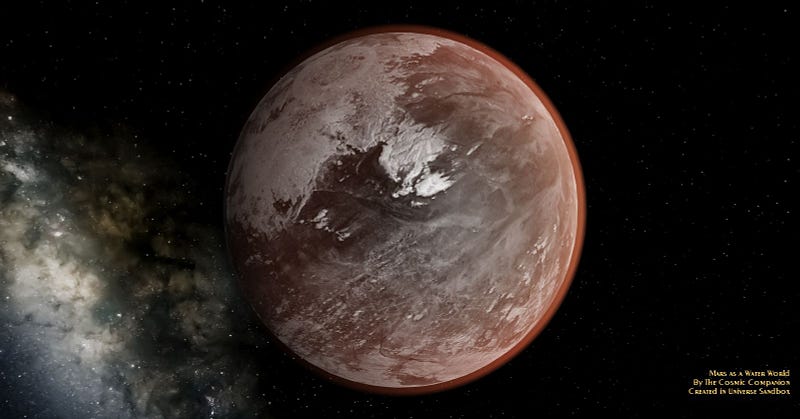The Mysterious Origins of Water on Celestial Bodies
Written on
Chapter 1: The Enigma of Water's Source
What accounts for the presence of water on various planets? Is it the result of comet impacts, or did it form organically on Earth and Mars? Recent studies of a Martian meteorite may provide crucial insights.

Once a planet rich in water, Mars prompts the question: where did its water, and that of Earth, originate? A fresh analysis of a Martian meteorite may offer some answers. Water constitutes about 75% of Earth's surface and has been detected on other celestial bodies, including subsurface ice deposits on Mars. A key inquiry in planetary science revolves around how water came to exist on planetary surfaces.
Water can form through various chemical reactions, suggesting that it could have arisen from such processes in the early solar system. Alternatively, water might have been delivered to planets via cometary collisions—essentially, icy bodies from space.

Two meteorites, known as NWA 7034 and NWA 7533, were discovered in the Sahara Desert and have been identified as Martian in origin. One of these meteorites, NWA 7533, also referred to as "Black Beauty" due to its distinctive dark color, was recently analyzed by a research team from the University of Tokyo.
“I focus on the minerals in Martian meteorites to gain insights into Mars' formation and the evolution of its crust and mantle. This is the first time I've examined this specific meteorite, and through various spectroscopic analyses, we uncovered some exciting findings,” states Professor Takashi Mikouchi from the University of Tokyo.
The investigation into the Martian meteorite NWA 7533 suggests that the majority of water on planets likely originates from chemical processes rather than from interplanetary impacts.
Section 1.1: Water Across the Solar System
“Water is patient, Adelaide. Water just waits. Wears down the cliff tops, the mountains. The whole of the world. Water always wins.” — Dr. Who, The Waters of Mars
Water is prevalent throughout our Solar System, with recent findings revealing ice deposits on the Moon's sunlit surface. Over 3.7 billion years ago, Mars was host to expansive oceans and potentially primitive life forms. However, as Mars lost its original atmosphere, these water bodies either escaped into space or became trapped underground.
Mikouchi and his team discovered indications within the meteorite that water was likely present on Mars' surface during its formative years, around 4.4 billion years ago.

“Igneous clasts in the meteorite, which are remnants of magma, likely formed due to impacts and oxidation. This oxidation might have occurred if water was present in the Martian crust during an early impact that melted parts of the crust,” Mikouchi elaborates.
These chemical reactions may have released significant amounts of hydrogen. Given Mars' atmosphere, rich in carbon dioxide (CO2), this could have temporarily elevated temperatures, altering the climate.
“Such early oxidation of the crust due to impacts in the presence of water could have generated greenhouse gases that increased surface temperatures in a CO2-rich atmosphere,” the researchers explain in a study published in Science Advances.
By unraveling how chemical processes contributed to the formation of water on planets, scientists can gain a deeper understanding of water on distant exoplanets. This knowledge may also shed light on ancient Martian waterways and Earth's vast oceans.
James Maynard, the founder and publisher of The Cosmic Companion, is a New England native now living in Tucson with his wife, Nicole, and their cat, Max.
Did you enjoy this article? Join us on The Cosmic Companion Network for our podcast, weekly video series, informative newsletter, and Amazon Alexa briefings!
Chapter 2: Video Insights into Water's Origin
The first video, titled "Where Did Earth's Water Come From?", delves into the various theories surrounding the origin of water on our planet, exploring both cometary impacts and natural formation processes.
The second video, "Where Did Water Come From?", further investigates the sources of water across the Solar System and the implications for understanding other planets.